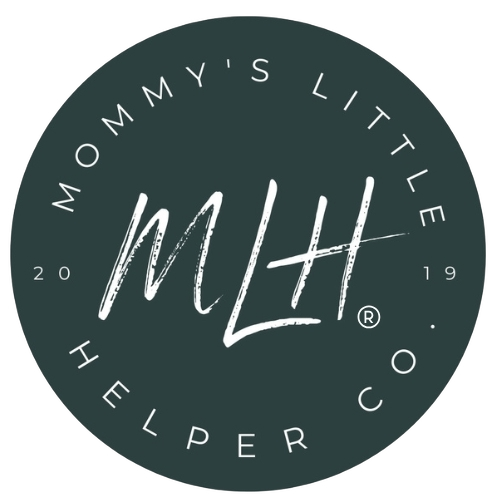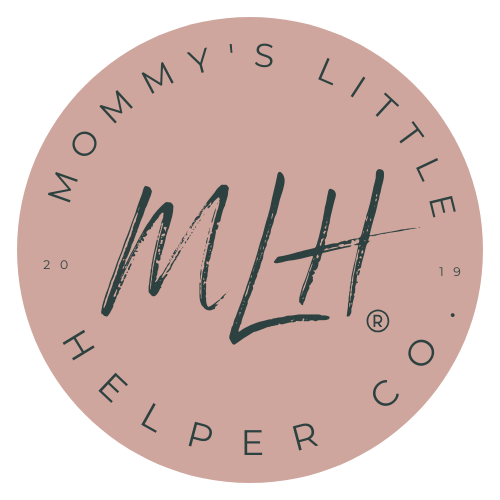
How to Stop Your Toddler from Hitting or Biting
Parenting a toddler isn’t easy, especially when your sweet little one suddenly starts hitting or biting out of nowhere. As a fellow mom, I’ve been in those shoes, standing in the kitchen, hands full, while your child lashes out and you’re left wondering: Where did that come from? You’re not alone; this phase is more common than we’d like to admit.
Let’s examine why toddlers hit or bite and, more importantly, what we can do as gentle, patient parents raising kind, capable little humans to prevent this.
Why Toddlers Hit or Bite
Toddlers aren’t being “bad” when they hit or bite. They’re still learning how to deal with big emotions in a small body. Whether it’s frustration, excitement, or overstimulation, they often don’t have the words yet to express what they feel.
Some common triggers:
-
Frustration when things don’t go their way
-
Teething discomfort
-
Tiredness or hunger (a.k.a. the “hangry” zone)
-
Overstimulation in busy environments
-
Difficulty sharing toys or attention
At this stage, kids are discovering boundaries, not just physical ones, but social and emotional limits too.
1. Stay Calm (Even If You're Not Feeling It)
Your reaction sets the tone. It’s hard, I know, but staying calm teaches your toddler that they can come to you even when they mess up. A firm but gentle “No hitting. Hitting hurts.” helps reinforce that the behaviour isn’t okay, while still showing that your love is unconditional.
It’s okay to take a breath before responding. Think of it as modelling the same self-regulation we want our little ones to learn.
2. Name the Feeling, Not Just the Action
Kids often lash out because they don’t know how to say “I’m mad” or “I’m overwhelmed.” Helping your toddler label their emotions gives them tools to express themselves better next time.
Try saying:
-
“You’re feeling angry because your tower fell over. That’s frustrating.”
-
“You’re excited and want to play, but biting isn’t how we show that.”
Over time, they’ll start using words instead of fists or teeth.
3. Redirect with Purposeful Toddler Activities
Busy hands are happy hands. Sometimes toddlers hit or bite just because they’re bored or under-stimulated. That’s where structured, development-focused toddler activities come in.
Setting your child up with sensory play, puzzles, or water play at the sink with the help of an educational tower (also known as a little helper stool) can be a game changer. It lets your toddler feel capable and involved, especially during daily routines like cooking or handwashing.
Letting them help make pancakes or rinse veggies (even if it gets a bit messy) builds confidence and connection. When toddlers feel like they're a part of things, they act out less.
4. Be Consistent With Boundaries
It’s tempting to let things slide, especially after a long day, but consistency is key. Every time your toddler hits or bites, calmly step in with the same response. Predictability helps them learn faster.
If they bite during play, calmly stop the activity and say:
-
“Biting is not okay. We stop playing when we bite.”
Then offer an appropriate alternative like: “You can bite this teether instead.”
Staying firm but kind shows that actions have consequences, but love doesn’t go away.
5. Praise Gentle Touch and Kind Behaviour
Sometimes we focus so much on correcting the bad behaviour, we forget to highlight the good. When your toddler gives a hug, shares a toy, or uses words to say how they feel, celebrate it!
Say things like:
-
“I love how you used your words when you were upset.”
-
“That was kind of you to pat the dog so gently.”
Positive reinforcement goes a long way in shaping future behaviour.
6. Create a Safe, Predictable Environment
Toddlers thrive on routines and calm spaces. Keep transitions predictable when possible, and try to avoid overstimulation (like back-to-back chores or loud environments) if you know that leads to meltdowns.
Having a dedicated toddler-safe play space where they can climb, explore, and move freely helps too. Our little helper play furniture is designed with that in mind, giving toddlers freedom within safe boundaries to burn off energy in a constructive way.
7. Take Care of Yourself, Too
Let’s be honest, parenting a toddler is emotionally and physically exhausting. If your patience runs thin, that’s okay. You’re human. Find little moments to recharge, whether it’s a hot coffee, a walk, or calling a friend who gets it.
When you care for yourself, you show your child what healthy regulation looks like. You matter just as much in this journey as your little one.
Final Thoughts
There’s no one-size-fits-all solution to toddler behaviour. Every child is unique, and every phase will pass. What matters most is how we show up: with patience, empathy, and a toolkit of gentle strategies that meet our toddlers where they are.
At Mommy’s Little Helper Co., every product is designed with quality craftsmanship and safety in mind. Our learning towers and play furniture support independent toddler activities. We’re here to make life easier, not harder. Explore our collection today.




